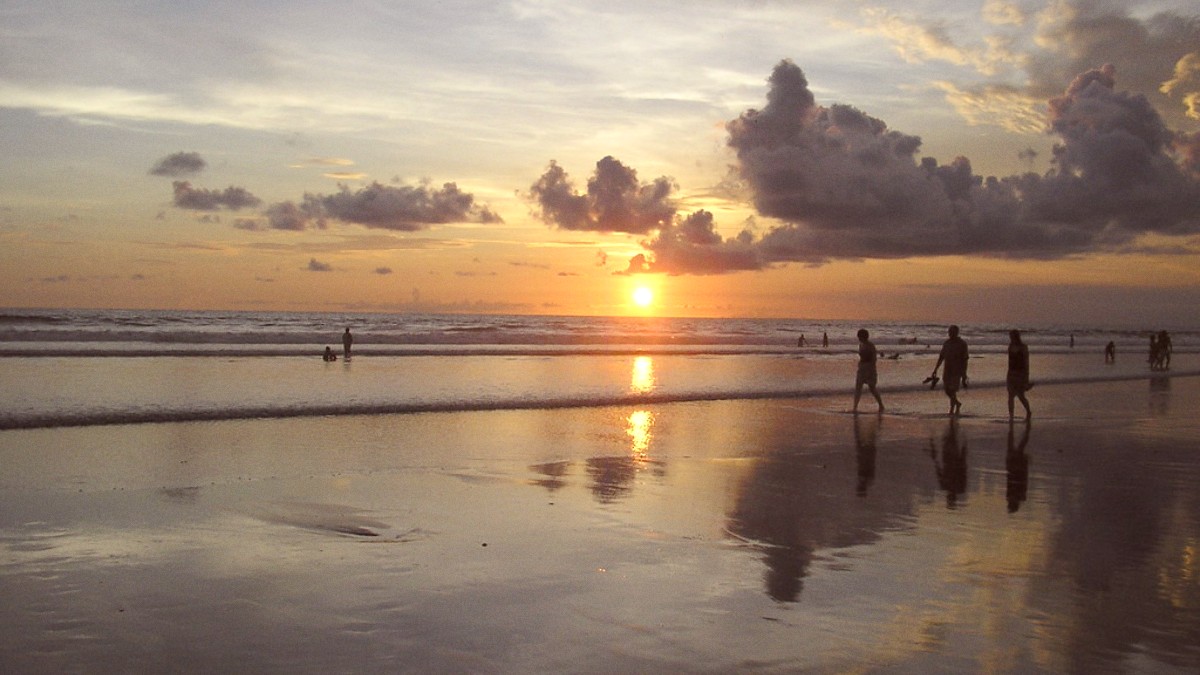
Indonesia
Balinese cuisine utilizes fresh local ingredients, a rich array of strong spices, and aromatic herbs. Rice is a staple, often with vegetables, meat (pork, chicken, duck), and abundant seafood.
Balinese food is known for complex and balanced flavors. Expect a delightful blend of aromatic, spicy, savory, and sweet notes. Bumbu (spice paste) forms the foundation of many dishes.
Spoon and fork are common. In traditional settings, locals eat with their right hand; if you choose this, only use your right hand.
Dishes are often shared family-style. Avoid pointing with your foot. Tipping for good service is appreciated.
Be mindful of canang sari (small Balinese offerings) on the ground; step around them.
Bali's famous whole roasted pig, marinated with a rich blend of spices. Incredibly crispy skin and tender, flavorful meat.
Find at: Warung Babi Guling Pak Malen, near Seminyak.
Indonesia's national dish (fried rice) or fried noodles. Stir-fried with egg, vegetables, choice of meat, often with fried egg and crackers.
Find at: Almost any warung, cafe, or restaurant across Seminyak.
Minced meat/fish satay molded around lemongrass skewers. Lawar: chopped meat/veg with coconut & spices. Betutu: slow-cooked stuffed chicken/duck.
Find at: Traditional Balinese warungs or upscale Balinese restaurants (Betutu often by advance order).
Ku De Ta, Potato Head Beach Club, Bambu, Sarong, Métis, Merah Putih. Exquisite cuisine and ambiance.
Mid-range: Sisterfields, Sea Circus, BO$MAN, Nook. Budget: Warung Made, Warung Murah, street stalls. International cuisine is extensive.
Vegetarian and vegan choices are increasingly common. Many cafes and restaurants cater specifically to these diets, with dedicated menu sections.
Halal food is widely available across Indonesia, a Muslim-majority nation. Many restaurants serve halal meat, and chicken/fish options are almost always halal.
Awareness of gluten-free and other allergens is growing, but it is not universal. Larger international restaurants and health-focused cafes are more likely to cater.
Balinese and Indonesian cooking classes are popular, often with market visits for local ingredient insights. Food tours explore markets, street food, or high-end dining. For an overview of local experiences, check GetYourGuide.
A fun and educational way to learn about the local food culture.
Farm visits are less common in Seminyak's urban area, but day trips to central Bali (Ubud) offer coffee plantations, rice fields, and spice farms. Seminyak is known for innovative dining concepts like beach clubs and themed restaurants.
Beach clubs like Potato Head, Ku De Ta combine dining with leisure and entertainment.
Most prominent food festival (requires day trip).
Beach clubs and restaurants host special culinary events, themed nights.
Some venues bring in guest chefs for unique dining experiences.
Check local listings and social media for current promotions.
Pasar Seminyak, a traditional market, mainly sells fresh produce in the mornings. A few food stalls with traditional snacks may be present.
Visit early for fresh produce and a local vibe.
Dedicated large food halls are not a prominent feature in Seminyak itself.
Canggu's Echo Beach market (a short ride away) has popular food sections.
Specific ceremonial foods are prepared during major religious festivals like Galungan, Kuningan, and Nyepi. These often feature elaborate spreads.
Seminyak is known for its innovative dining concepts.
These are popular. Learn to prepare traditional Balinese and Indonesian dishes.
Several studios feature classes for designing and creating your own silver piece.
Learn the traditional Indonesian art of wax-resist dyeing. Create your own batik fabric.
High-end hotels host traditional Balinese dance and Gamelan music. Local temples, like Petitenget Temple, host elaborate ceremonies where visitors respectfully observe.
A genuine glimpse into Balinese spiritual life is present.
Informal language exchanges or basic Bahasa Indonesia lessons are sometimes found via private tutors or local cultural centers.
Language learning apps are useful for basic phrases.
The Balinese Day of Silence. The entire island is shut down for 24 hours (March/April) for self-reflection. No flights or outside activity permitted. Planning around this date is important.
Major Balinese Hindu festivals, occurring every 210 days. The island is adorned with "penjor" (tall bamboo poles) and temples host elaborate ceremonies. Shops and services are generally open.
Bali's cultural calendar is rich with festivals. Check local listings or social media for current events during your visit to discover more.
Exploring Seminyak's food scene brings diverse tastes and memorable moments. Enjoy the blend of local and international flavors.